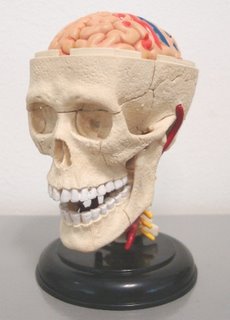 You know, I didn't always want to be a scientist.
You know, I didn't always want to be a scientist.My first aspiration was to become a pilot.
Ideally a space pirate like Han Solo - imagine the freedom to fly anywhere in the galaxy!
With a loyal, furry alien companion by my side.
And a plucky Princess to fulfill all my regular needs when spending many days in the dark depths of space - in a cosy vehicle decked out in smooth leather and cold metal.
Sweet!
So I read up lots of books about aeroplanes and ironically became too myopic to actually become a pilot.
Talk about short-sightedness!
Then later, like every other geeky kid growing up in the 1990s, I wanted to become a computer wiz.
In those days: Computer = Smart.
Unfortunately spending too much time setting jumpers, replacing clock crystals, mucking around in thick programming manuals and debugging endless lines of code was slowly causing me to lose my mind.
Due to frustration and confusion. More the former.
And so I switched focus - to the mind.
The Science of Brainz!
Actually I've been quite a science geek throughout my childhood, but it was an incident during junior college that let me truly appreciate science as a method, rather than a collection of facts.
Reeling from a failed maths exam (I always suck at maths), I sought refuge in my school library and noticed a big, heavy book sitting in the periodicals section.
Just above a stack of computer magazines screaming "586 Will Be Called The Pentium!" and "Insider News About Windows Chicago!"
It was a Scientific American book about psychology. A collection of classic psychological studies dating back to the 1950s.
I remember distinctly two of the articles - one about Harry Harlow's study of love in infant monkeys, and another about "The Moon Illusion".
The moon illusion study was especially interesting because it clearly illustrates how scientists use various methods to check possible explanations of the same effect.
For example: some people proposed that head angle may influence the perception of the moon's size, so researchers created an ingenious optical device that bends light at an angle, causing a rising moon to appear as if it was directly overhead.
Observers looking through this device did not experience the moon illusion, supporting the hypothesis that head position matters.
It was a fascinating investigation that helped to spark my curiosity in brainz science.
Today, Scientific American continues their long tradition of producing cool articles about brainy stuff with an exciting new addition: a weekly podcast called the 60-second Psych.
If you've got a minute, why not head on over and check out the latest brainy discoveries?
Wait a minute... I see a glazed look in your eyes.
You're still having certain thoughts about the Princess, aren't you?

Did you even hear a single word I said?
How typical.






2 Comments:
I was a science geek too when i was young!! I would read those "Did you know" kind of books, books on dinosaurs, space, planets, etc. Never ever bothered to read any fiction books LOL.
Me too, I read mainly non-fiction books, except the "Choose Your Own Adventure" series of story books. I also read lots of war history books - but I lost interest in them after NS. Haha...
Post a Comment